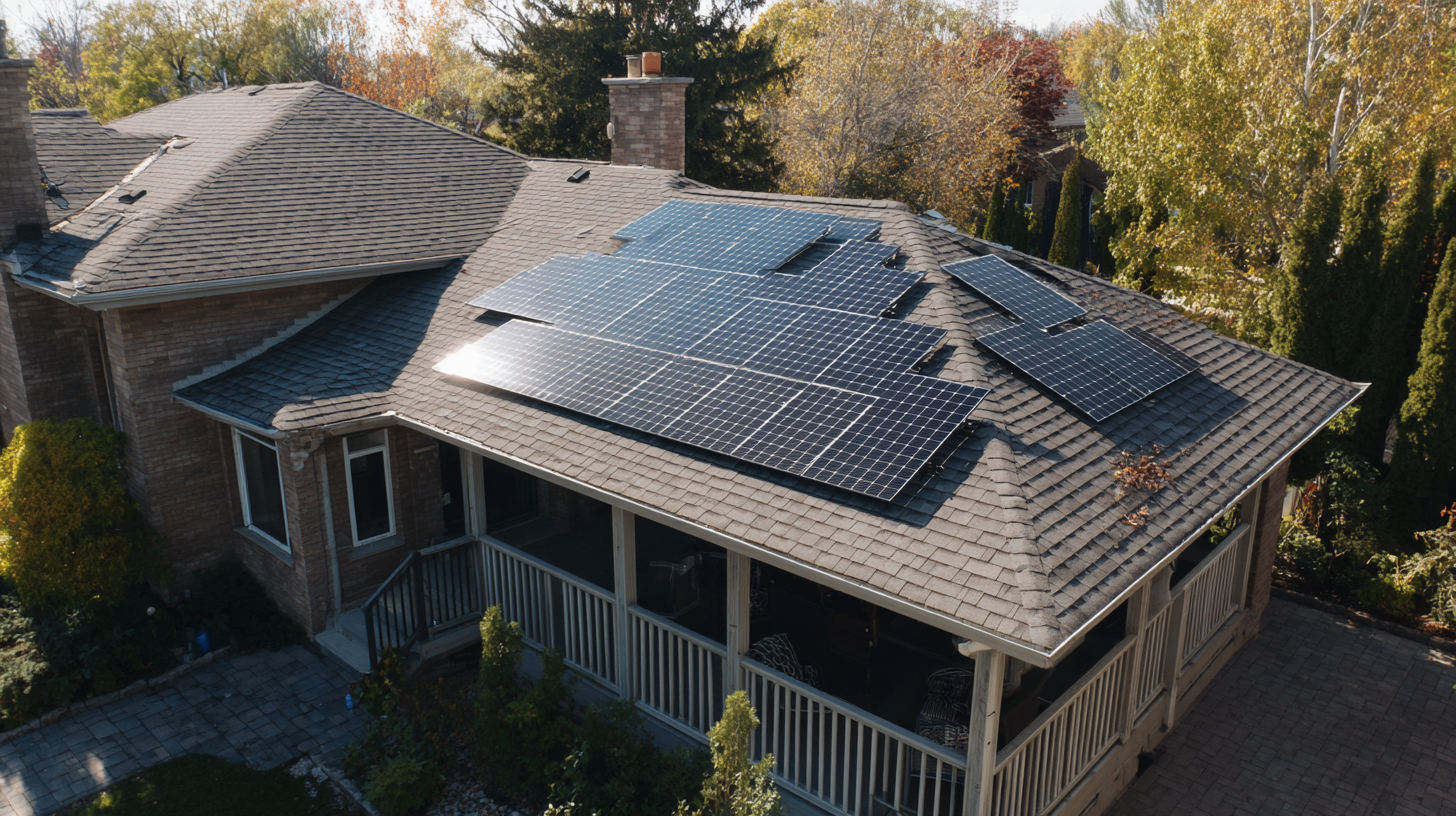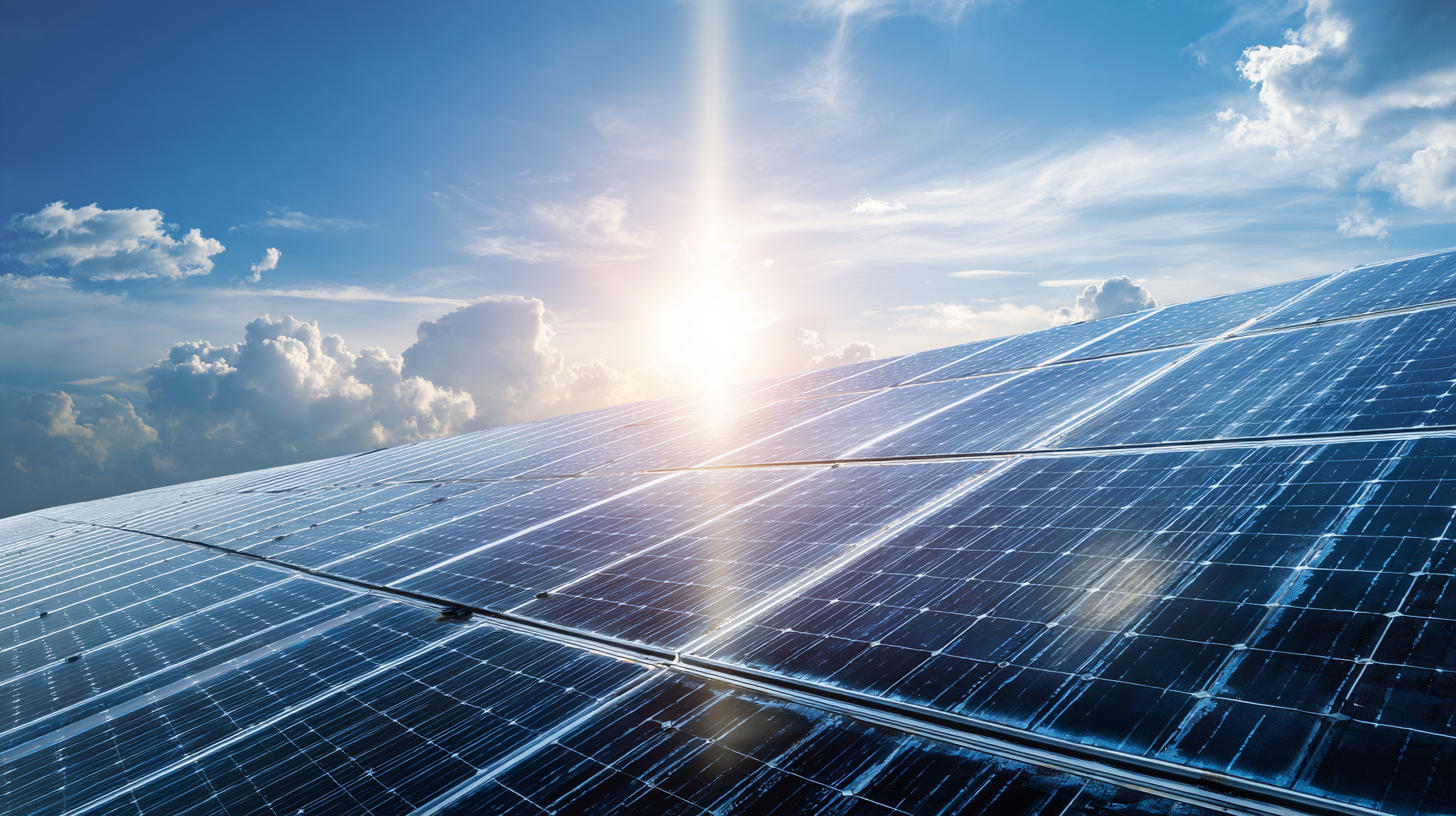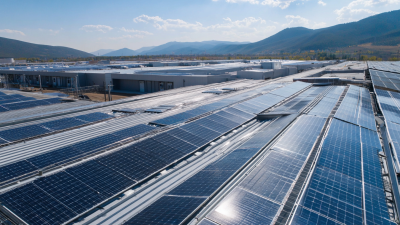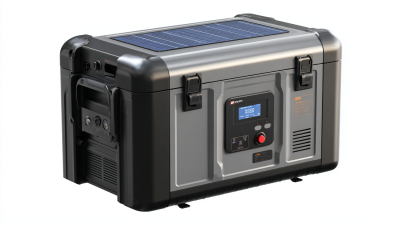MH Energy Your Better Solar and Energy Partner
MH Energy Your Better Solar and Energy Partner
As homeowners increasingly seek sustainable energy solutions, the installation of solar panels for home use has emerged as a compelling option. According to the Solar Energy Industries Association (SEIA), the United States alone saw a 43% increase in solar capacity in 2020, solidifying solar energy as one of the fastest-growing energy sources in the nation.
 With residential solar installations projected to exceed 4 million by 2023, the economic benefits are equally striking; homeowners can save an average of $20,000 on their energy bills over the system's lifetime. Furthermore, the Department of Energy has reported that solar panels can increase property values, adding an average of $15,000 to the resale price of homes with solar systems. As the world shifts towards more sustainable practices, investing in solar panels for homes not only supports individual financial savings but also contributes to a larger global movement towards renewable energy and reduced carbon footprints.
With residential solar installations projected to exceed 4 million by 2023, the economic benefits are equally striking; homeowners can save an average of $20,000 on their energy bills over the system's lifetime. Furthermore, the Department of Energy has reported that solar panels can increase property values, adding an average of $15,000 to the resale price of homes with solar systems. As the world shifts towards more sustainable practices, investing in solar panels for homes not only supports individual financial savings but also contributes to a larger global movement towards renewable energy and reduced carbon footprints.
Installing solar panels has become a smart financial move for homeowners, especially as a growing number of surveys indicate the increasing value of this investment. A recent survey from Aurora Solar found that 75% of respondents view solar panels as a beneficial financial choice. This perception is driven by the potential for significant savings on utility bills and the inclusion of federal solar tax credits, which can further reduce the overall installation cost. As experts explain, the financial savings can be equated to receiving thousands from the government, making the decision to switch to solar not just environmentally friendly but also economically savvy.
For homeowners considering solar, here are a few tips to maximize financial benefits: First, assess whether a solar lease or a power purchase agreement (PPA) aligns with your financial goals, as these options can often lead to lower initial costs. Secondly, take advantage of federal tax credits before they phase out, as timely installation can result in substantial savings. Additionally, be proactive about comparing different providers to ensure you receive the best deal, as the market for solar installation continues to grow and evolve, offering competitive options for consumers.
Solar energy plays a pivotal role in promoting sustainability and mitigating the environmental impact of traditional energy sources. As governments globally aim to triple renewable energy capacity by 2030, harnessing solar power becomes increasingly vital. Solar panels generate cleaner energy compared to fossil fuels, offering a tangible pathway towards reducing greenhouse gas emissions. However, it's essential to acknowledge that the production and disposal of solar panels do have environmental consequences, such as resource extraction and waste management issues. Therefore, employing smarter technologies and sustainable practices in solar energy production is crucial to minimize these impacts.
Furthermore, innovations in solar energy technology, including generative AI, can enhance system efficiency and sustainability. By optimizing energy output and resource management, these advancements can address some of the environmental challenges associated with solar energy. The ongoing global expansion of solar photovoltaics is central to the energy transition, aligning with broader efforts to combat climate change. As consumers and communities increasingly adopt sustainable practices, solar energy emerges as a vital component of a resilient, climate-compatible economy.

Installing solar panels can significantly increase property value, making homes more attractive to potential buyers. In today’s environmentally conscious market, many buyers prioritize energy efficiency and sustainable living. Homes equipped with solar energy systems often boast lower utility bills and reduced carbon footprints, appealing to those who wish to minimize their impact on the environment. This can create a competitive edge for sellers, as properties with solar installations can stand out in a crowded real estate market.
Furthermore, as government incentives and tax credits for renewable energy continue to evolve, buyers are increasingly aware of the financial benefits associated with solar panels. These incentives can empower homeowners not only to save money while living in their homes but also to recoup their investments when it’s time to sell.
Consequently, homes with solar energy solutions are positioned to attract a wider range of prospective buyers, ultimately leading to faster sales and potentially higher prices. Such dynamics signify that investing in solar technology is not only a step toward sustainability but also a savvy financial decision for homeowners looking to enhance their property’s appeal.
Government incentives and rebates for home solar panel installations are increasingly becoming an attractive option for homeowners looking to adopt sustainable energy solutions. Many governments offer financial incentives to encourage homeowners to switch to solar energy, making the initial investment in solar panels much more manageable. These incentives can include tax credits, grants, and state-specific rebates, which can significantly reduce the overall cost of installation. For instance, the federal solar tax credit allows homeowners to deduct a substantial percentage of their installation costs from their federal taxes, which can equate to thousands of dollars in savings.

Additionally, various state and local governments provide unique programs aimed at promoting the use of renewable energy. Some regions have introduced property tax exemptions for solar panel installations, ensuring that homeowners do not face increased property taxes due to the enhanced value of their homes. Others may offer low-interest loans or financing options specifically for renewable energy projects. By taking advantage of these incentives, homeowners can not only make a significant contribution to environmental sustainability but also lower their energy bills and increase their property value, making solar panel installation a wise financial decision.
Switching to solar energy solutions
represents a vital decision for homeowners looking to enhance their sustainability while enjoying significant long-term cost savings. The initial investment in solar panels may seem daunting; however, many homeowners find that the financial benefits, coupled with various incentives, make it a wise decision. With the decreasing costs of solar technology and the potential for government rebates, the return on investment can be realized within a few years.
Tips:
Before making the switch, consider assessing your home’s solar potential by evaluating roof orientation and shading. Investing in a solar energy calculator can provide potential savings estimates based on your location and energy usage. Additionally, explore financing options that can allow you to maintain cash flow while reaping the benefits of solar energy.
Over time, solar panels can significantly reduce your electricity bills, sometimes eliminating them entirely. With net metering policies in place, homeowners can sell excess power generated back to the grid, offering an additional stream of savings. This transition not only aligns with eco-friendly practices but also provides financial security through lower and more predictable energy costs in the long run.
Tips:
Research local solar providers to ensure you select reputable contractors. Check for customer reviews and the warranties they offer to ensure you are investing in reliable and efficient panels. Taking these steps can safeguard your investment and help you maximize savings.






